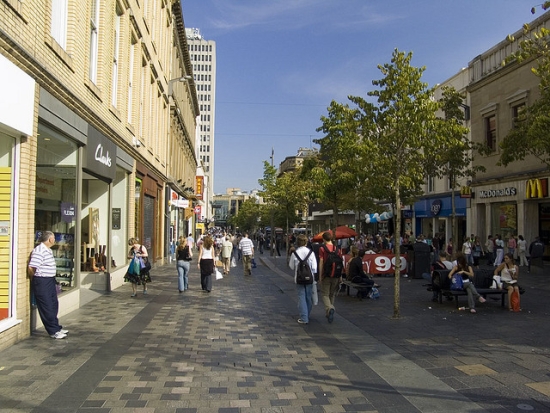Retailers — who claimed that business rates should be reduced in line with falling rental values — have lost a three-year fight to change Scottish valuation law.

Sauchiehall Street, Glasgow
The national and local businesses, who each lodged individual appeals against the 2005 revaluation of rental premises on Sauchiehall Street, Glasgow, included Schuh, Superdrug, Thornton’s and Greaves Sports.
Rejecting the appeals, the Lands Valuation Appeal Court has now ruled that falling rental values are not covered by the definition of “material change of circumstance” in rating law and therefore did not justify a rate reduction.
The decision was immediately branded a “killer blow for Scotland’s High Streets” by Brian Rogan, head of rating and taxation in Scotland for property agent CBRE. “Retailers across Scotland have seen their property’s rental values fall by up to 50pc since the peak of the market in 2007 due to the recession, changes in consumer shopping habits and the success of out of town developments.
“This is actually a double whammy for the retail sector in Scotland as ratepayers are now unable to have their rates bills changed to reflect local circumstances until the next revaluation in 2017,” added Rogan. “The Scottish system is now far more restrictive than its English counterpart. It is an undoubted stumbling block for the hopes of regenerating Scotland’s High Streets.”
All the appeals were originally heard by the Glasgow Valuation Appeal Committee in February, 2011. The retailers pleaded that the true value of their outlets had been reduced by the combined impact of out of town shopping centres, the general decline of Sauchiehall Street as a prime retail location, and the ongoing credit crunch. The assessors countered by claiming there had been no reduction in rateable values, making the full rate payable.
The appeal committee disagreed and ordered that the values in the roll should be altered from 1 April, 2009, effectively cutting business rates on the Glasgow street by around 30pc.
In reply, the assessor appealed to the Lands Valuation Appeal Court which in turn ruled that only the economic crisis constituted a relevant “material change of circumstances” under the Local Government (Scotland) Act 1975 and that the valuation committee “should have allowed reductions only to the extent that they were caused by it”. The case was then returned to Glasgow for a rehearing where both businesses and assessors appealed in turn against future decisions.
In an attempt to bring the legal wrangle to a conclusion the Lands Valuation Appeal Court was eventually asked to define a “material change of circumstances”, amended in 1984 to allow economic changes to lead to reduced rates bills for ratepayers.
In a landmark decision the court ruled that falls in rental values in town centres, caused by changes in the economy or the impact of out of town centres, are not covered by the definition of “material change of circumstance” in rating law. “If every downward fluctuation, whatever the cause, constituted a material change of circumstances, the whole basis of quinquennial revaluation would be undermined,” the judgement stated.
Previous Post
Former Steel Town secures Hi-Tech Future